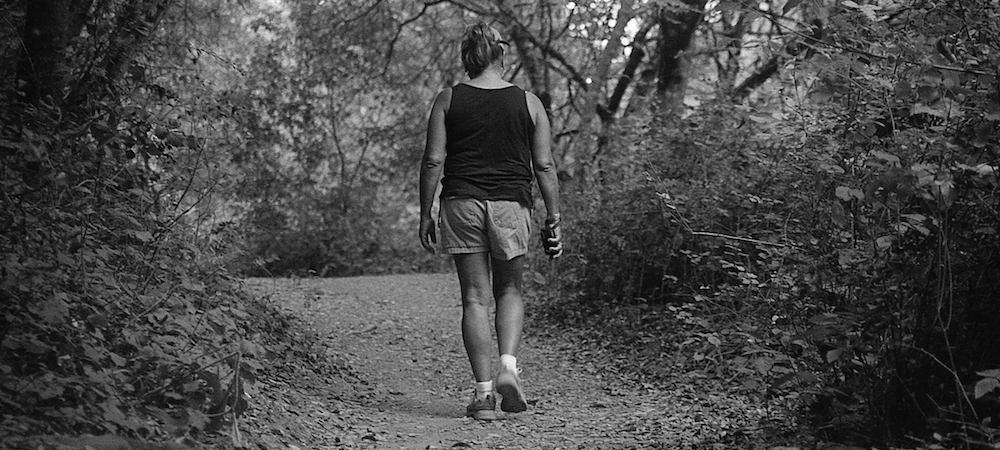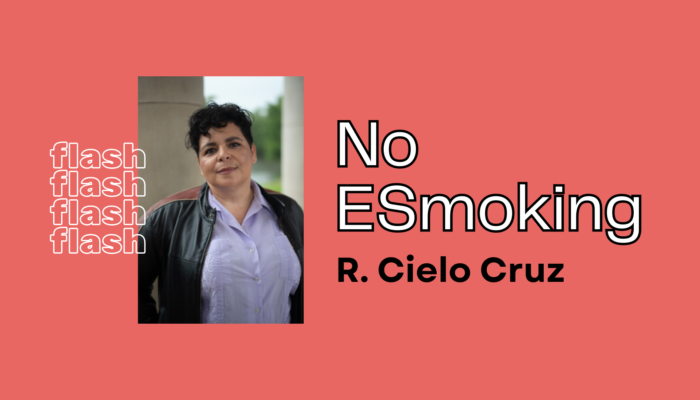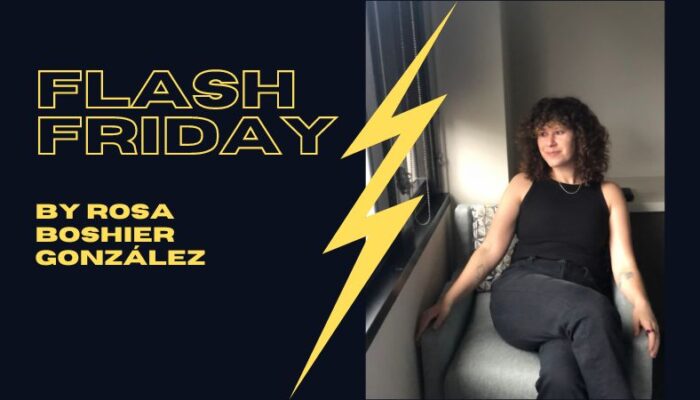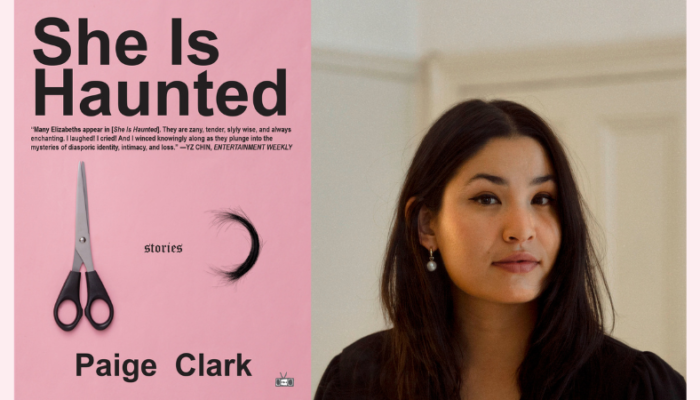The Beginnings
I could begin by telling you I didn’t know I was black until I was twelve years old. I could begin: A black man knocked on our front door and introduced himself as my mother’s brother. At the end of the visit we marked his new status – Uncle – on our family’s height wall. My Grandma Barbara had given him up for adoption when he was a baby, but no one told me why. Now I think it was because his skin revealed our bloodline. I could tell you something inside of me changed when I found out my grandmother’s secret, but I am not sure if that’s true. I didn’t understand what being black meant, then. I’m not sure if I do now. After he left, I never saw that uncle again.
I could tell you there are small particles of blackness in some people’s blood. Sometimes, they are so small they are almost invisible.
I could begin by telling you my great-grandmother, my grandmother, and my mother all suffered such severe post-partum depression that children were sent to orphanages, juvenile halls, and foster care. I could tell you from the beginning that when my mother stood on street corners, something inside of her begged her to push my stroller into oncoming traffic. I could tell you babies died. I could tell you that I fear my sister and I won’t birth children, that our female lineage ends with us.
I could begin by telling you my mother appears in the darkest corners of my dreams. I scream and I plead for her to see me not as her child but as my own woman. She is in the background and foreground of my nightmares; she is a frightening woman I cannot comprehend. She made me. I am hers. I wake up soaked in sweat.
I could tell you that I belong to my mother, that she views me as her creation, her trophy. When I graduated college, she invited white parents and neighbors to the celebrations and they raised their glasses to her, congratulating her on my accomplishments. That night we drank wine until our voices slurred and shouted on our back deck. She dragged me into a bedroom and we circled each other like wolves, snarling as we fought to establish alpha woman. I cornered my mother in front of the windows and she spat at me, “Shut up. Shut up, Jane, you alcoholic bitch.” I looked her in the eyes and told her, “You were a bad mother.”
I could release all of our family secrets, all of my mother’s secrets, from the beginning. I could hurt my mother, I could enact revenge, I could preserve her, I could enshrine her; I could petrify her like wood and turn her into a beautiful gemstone she would be proud of.
I could begin with memories and their fickleness, with how they vary between siblings. I could begin with the making of myths.
I could begin with Adam and Eve and the breaking of a ribcage. I could begin with man’s glory and woman’s shame. I could begin with monkeys in Africa and whales off Antarctica and swirling seas and primordial soup and the splitting of the first cells. I could begin with two people falling in love.
I could begin by writing: Once upon a time, a young woman named Jean met a young man named Maurice. They fell in love and had three children together, including my Grandma Barbara. Their children grew up healthy and had children of their own, and eventually everyone lived happily ever after. But then I would have to tell you through myriad footnotes that Jean was black and Maurice was white, that they lived in 1930s Chicago when segregation was publicly sanctioned, that both Maurice and anti-miscegenation laws declared their marriage null and void, and that furthermore, health and happiness are relative.
I could begin with land. I could tell you of a river that splits the North and South in two, and how when it froze, people tiptoed across its ice to freedom. Freedom is what white people have. I could tell you that along this river are tall trees with broad leaves and towns with boarded up main streets and red, white, and blue flags with X’s on them. I could tell you that clapboard houses and wrought-iron gates and white pillars and mobile and shotgun homes sit side by side, and that I drove through this land looking for someone. I could begin by telling you my Great Grandma Jean was born on this land. I could tell you that on this land is a public swimming pool called Crystal Beach and on the day it was integrated, a seven-year-old black boy drowned.
I want to begin by telling you I love my younger brother. He is gentle and handsome and kind. It is important to know that he is brown. His skin is brown and his hair is brown and his eyes are brown and the dirt under his fingernails is brown. And while I always saw he was brown, I didn’t always know being brown costs boys their lives.
I could begin with honesty. I could begin by telling you that I love how easily my own skin browns in the sun. I could begin by telling you that in high school I thought my blackness made me cool. I loved shocking white people. I loved how black people looked at me, said all right, and I was one of them. I liked that they saw blackness in me. I liked that race was tribal. I liked that I could look around school and see different races grouping together because of chemical bonds. I never felt the white students bond like that, as if bondage was hardwired into their DNA. Maybe I felt their exclusion. They knew I wasn’t really one of them. They saw my mother. White boys picked me up from my mother’s house and, embarrassed of her, I tried to keep them in the entryway. Her living room had cracks across its ceiling and second-hand furniture and different colored carpets and plants everywhere–mini palm trees and gardenias and succulents and poinsettias year round–and she was always burning incense. My brother and I had climbed trees barefoot and backyard fruit juice dried on our faces during childhood summers. Our mother tied our dog to a self-made runner (our clothesline) and white neighbors called animal control. Cousins or uncles were always living with us, staying in our loft or yurt or parking their vans or motorhomes along our listing fence. My mother chainsawed our trees and old furniture, then burned them in our bonfire pit. I could begin by honestly questioning if I passed in certain circles of friends, ashamed of my mother because she was not a white mother. But I loved how my friend Kiara talked about her older brother’s friends, how she wore thick, light-pink lip gloss, how her flip-flops had rhinestones on them, and how once at lunch Kiara pulled up her denim mini-skirt to show me and Makayla the rash between her thighs. I loved how my mother’s first cousin came to one of my high school award ceremonies and a group of my black girl friends sped over to me, asking if the handsome man was my mother’s boyfriend. I loved validating our blackness: “He’s our Cousin.”
I could begin with my mother.
I could begin with myself.
I could begin by telling you that I am no longer ashamed of my mother or her ethnicity, but sometimes I think she still is.
I could begin with an anecdote about a white family who lived across the street from us. I could begin with the neighbor’s confessional Facebook post: “Her Dad is British, Mom American from a multiethnic African American family. I thought they were white, just sort of brown-skinned and very curly dark hair.” I could begin with my mother’s rage at people discussing her race publicly. I could tell you how a white friend of hers came by recently to tell my mother, “I never knew you were a person of color!” I could show you my mother thinks race should be mentally acknowledged, not verbally addressed.
I should begin by telling you I’m also part Mexican. I should begin by writing that much of my mother’s copper skin tone comes from her father, who left when she was four. I could begin with the white family up the street who introduced me as “Jane, our little Mexican friend.” I could tell you how my mother misspells me as “meija.” I could begin: I never met my grandfather, but I know he has been Texan and Native American and Mexican and Puerto Rican and Spanish over the years. I should begin, Mexican is my best guess.
I could begin with my own father. I could begin: I do not like writing about my father. I could begin: Just like my Grandma Barbara, I have a white father who I feel discarded me. But this is not fair, my mother tells me. Grandma Barbara’s father was born in America and mine in England; the law recognized my father’s marriage to my mother; Grandma Barbara’s father left his three children homeless; my father lived with his three children from the beginning until the end. As a child, I loved my father most when we brought him birthday breakfasts-in-bed. My parents divorced when I was twelve, shortly before our black uncle appeared. My white father fought for joint-custody. And years later, on the weekend of the protests in Charlottesville, my white father donned a British pith helmet and wandered the Delaware garden of his white girlfriend, playing Lord Carnarvon on safari with her white niece and nephew. When I tried to tell him how I felt about the statues and the murder, my father sighed over me and said, “Well, what can you do? Let’s try not to let it ruin the vacation.”
I could tell you that sometimes the whiteness in my veins feels like poison.
I could breathe and begin with my own land. I could begin with our crooked house in the Berkeley Hills or the view of San Francisco from our predominantly-white elementary school. I could tell you that when my brother was in high school, police officers pulled him over and told him not to drive through their town. I could begin with the cemetery across the street from our childhood home. I could begin with candles, rosaries, and superstitions. I could tell you I believe in ghosts.
I could begin by telling you a woman haunts me. She walks beside me, a lace umbrella shading her face. There is no rain. Stay out of the sun, stay out of the sun, stay out of the sun. She doesn’t turn pink like the other white girls. Sunlight turns her skin brown.
I could tell you how house slaves were the highest breed, the most expensive of Negroes. But then I’ll wonder if you knew this already; I’ll wonder who you are, reader. Are you made of white or of color? If I knew, I wouldn’t have to begin by telling you how house slaves navigated underground tunnels and hidden staircases, paling in the shadows. I wouldn’t have to tell you how house slaves soaped their mistresses’ naked white bodies and washed their pink nipples. How house slaves came into contact with white masters and sons. I wouldn’t have to tell you how they were halved and halved and halved, how they were designated mulattos and octoroons and mustifinos, how they were the results of a white master sleeping with his slave mistress, fucking his sex slave. If I knew who you were, I wouldn’t have to tell you how he fucked her. Because he fucked her–he fucked her over, he fucked her under, he fucked her by exotifying her, he fucked her by keeping her in the shade so he could feel better about impregnating her, he fucked her by telling her she was worth something beyond money, he fucked her by consciously breeding her, he fucked her by offering her daughters’ breasts and wombs to his sons-in-law, he fucked her by selling her children at county auctions, and he fucked her by watching her sons get lynched.
I don’t want to begin by telling you how this woman who haunts me, this light-skinned woman, descendent of slave-owning men, carries her mother’s shame. This woman carries her mother’s blackness and, if she is lucky enough, if she hides from the sun and her voice and her family enough, she can be regarded highly by her white master. Her master’s pale genes allow her to be in his company, in his true wife’s company. Her master’s pale genes allow her to serve high society and her master’s pale genes declare her High Yellow. She is of the highest value, the highest in Negro society. She can act like white people. She can pass as white people.
I could begin: This woman who haunts me, I come from this woman. This woman is my Great Grandma Jean; her master is the white great-grandfather I am grateful to have never met. This woman is my Grandma Barbara, who left her mother and siblings for a new, white life in Los Angeles. This woman is a female cousin who adamantly denies her black heritage. This woman is my auntie who lowers her voice on the phone so that her white husband doesn’t hear her say, “Grandma’s blackness.” This woman is my aunts who did not attend their mother’s funeral. This woman is all of the women still hiding from their mother’s black shame, and the white father who placed it upon them.
I could begin: I am trying to find a woman, and I think she is me.
I could tell you, I am trying to say that racism rips apart families, that the oversimplification of identity is dangerous, and that the line between white and black has always threatened to split apart our nation. But I think I am too late to tell you this.
I could begin by telling you that I don’t know where to begin, when I don’t know where this ends.




